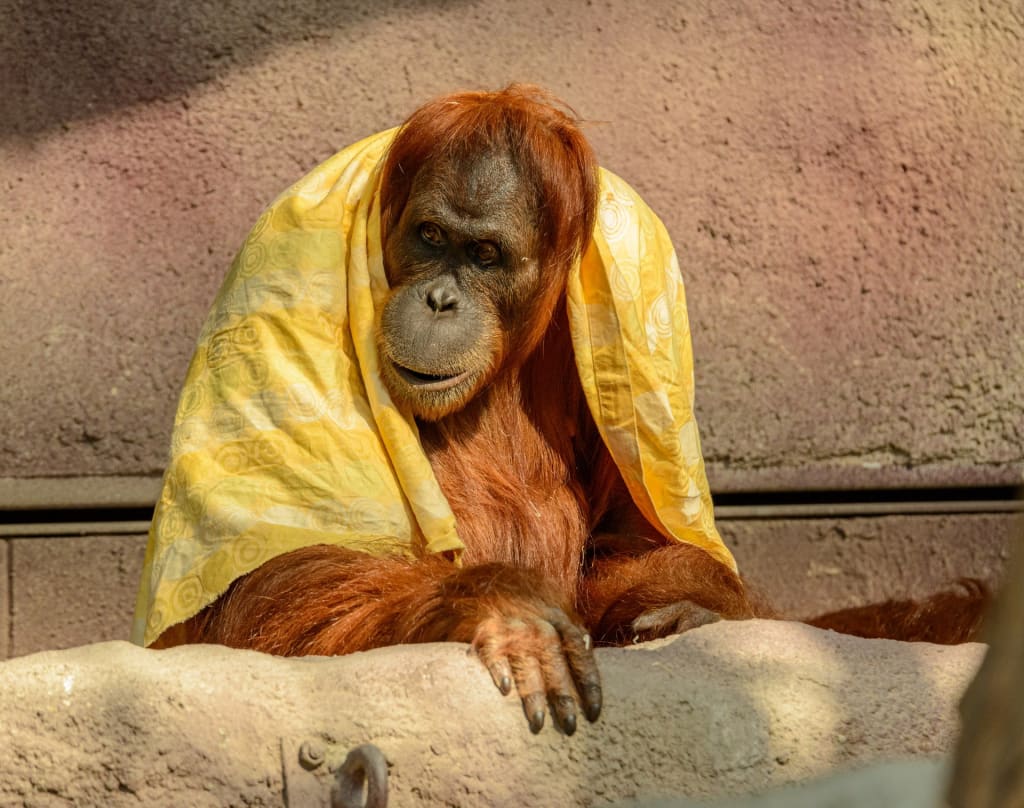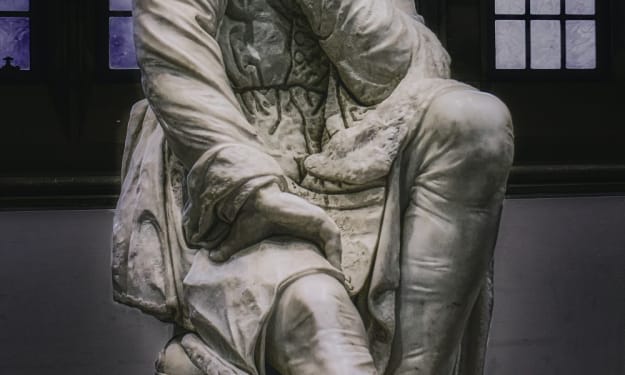
You will find numerous theories in what makes us human - several of which can be interconnected or related.
The topic of people's existence has been pondered for a large number of years. Ancient Greek philosophers Socrates, Plato, and Aristotle all theorized concerning the nature of people's presence, as have countless philosophers since.
Aided by the discovery of fossils and proof that is scientific scientists have developed theories too. While there could be no single summary, there is no question that people are unique. The act that is very of what makes us peoples is unique among animal species.
Many species on Earth are extinct, including several very early types, which can be individual. Evolutionary biology and proof systematically show that all humans evolved from apelike ancestors significantly more than 6 million years back in Africa.
Information obtained from early-human fossils and stays being archaeological that there were 15 to 20 various types of very early humans a few million years ago. These species, called hominins, migrated into Asia around 2 million years ago, then into Europe, and the remaining portion of the worldwide globe much later.
Although different branches of people become extinct, the unit leading to the human that is modern Homo sapiens continued to evolve.
Humans have much in common with other living animals on Earth in terms of physiology but are most like two other residing primate species regarding genetics and morphology: the chimpanzee and bonobo, with whom we invested the most time on the tree that is phylogenetic.
Nonetheless, just as much like the bonobo and chimpanzee as we are, the differences are vast.
Aside from the obvious intellectual capabilities that distinguish us as a species, people have several uniquely social, biological, and psychological characteristics. Although we cannot know precisely what exactly is within the minds of other animals, researchers could make inferences through studies of animal behavior that inform our understanding.
Thomas Suddendorf, teacher of psychology at the University of Queensland, Australia, and composer of "The Gap: The Science of What Separates Us From Other pets," says that :
"By developing the absence and presence of psychological characteristics in a variety of animals, we could produce a better comprehension of the development of the head. The distribution of a trait across related types can shed light on whenever and on exactly what branch or branches associated with the grouped household tree the trait is most likely to have developed."
As close as humans are to many other primates, theories from different research areas, including biology, psychology, and paleoanthropology, postulate that specific characteristics are unique. It is especially challenging to name all of the distinctly human traits or reach an absolute definition that makes us human" for a species as complex as ours.
Storytelling Animals
Humans also have an original sort of memory, which Suddendorf calls "episodic memory." He states:
"Episodic memory might be closest to what we typically mean whenever we make use of the term 'remember' in place of 'know.'"
Memory allows beings who are human sound right of this existence to get ready for the near future, increasing their odds of success, not merely separately but also as a species.
Memories are handed down through individual communication in the form of storytelling, which can be added precisely how knowledge is passed away from generation to generation, permitting tradition that is human evolution.
Because human beings are very social animals, they make an effort to understand the other person and contribute their specific knowledge to a communal pool, promoting more fast evolution that is cultural. Each peoples generation is more culturally developed than preceding generations this way, unlike other animals.
Drawing on research in neuroscience, psychology, and biology that is evolutionary in their guide, "The Storytelling Animal," Jonathon Gottschall delves into what it means to become an animal that relies, therefore uniquely on storytelling. He explains why are tales so essential:
They help us explore and simulate the long-term and test results different from taking genuine real dangers.
They help impart knowledge in a manner that is personal and relatable to another person.
They encourage pro-social behavior since "the desire to produce and consume moralistic tales is hard-wired into us."
Suddendorf writes this about stories:
"Even our young offspring are driven to know others' minds, so we are compelled to pass through on what we have learned to your generation that is next. As a baby starts on the journey of life, almost everything is just a very first. Young children have a ravenous appetite for the elders' tales and in-play; they reenact situations and duplicate them straight down pat until they have them. Whether genuine or fantastic, stories show not only circumstances but also the general ways that narrative works. How parents speak with their children about future and past events influences kid's memory and reasoning about the near future: the greater parents elaborate, the greater amount of kids do."
As a result of their unique memory and ability to get language skills and write, humans worldwide, from the very young towards the early, are communicating and transmitting their ideas through stories for tens of thousands of years. Storytelling remains key to being peoples and to a culture that is peoples.
Biochemical factors
Defining why humans are individuals can be tricky as more is discovered. Other living animals and fossils are uncovered that revise the evolutionary timeline, but scientists have found specific biochemical markers being sure to people.
One component that may account fully for human language acquisition and rapid development is the social gene mutation that humans have regarding the FOXP2 gene, a gene we share with Neanderthals and chimpanzees critical for the growth of standard message and language.
A study by Dr. Ajit Varki for the University of California, San Diego, discovered another mutation unique to humans into the polysaccharide covering associated with a mobile surface that is individual. Dr. Varki discovered that the addition of just one air molecule within the polysaccharide covering the cell surface differentiates people from other animals.
Religion and Awareness of Death
Among the simple things that forethought also provides humans could be the knowledge of mortality. Unitarian Universalist minister Forrest Church (1948–2009) explained his comprehension of religion as:
"our reaction to the double truth of being alive and having to perish. Knowing we will die not only places a limit that is recognized our lives, but it also provides a unique intensity and poignancy towards the time we are given to live and love."
Regardless of an individual's spiritual beliefs and ideas in what takes place after death, the reality is that, unlike other types who live blissfully unacquainted with their impending demise, humans are alert that someday they are going to perish. However, some species respond when certainly one of their very own has died; it is unlikely they think of death - that of other people or their.
The knowledge of mortality also spurs people on to achievements, which are significant to making the most out of their everyday lives. Some psychologists can be social that minus the knowledge of death, the birth of civilization, and the accomplishments it has spawned might not have occurred.
The Mind: Imagination and Creativity
Therefore, the mental faculties, the task of its countless neurons, and synaptic possibilities donate to the Mind that is a human being. The Mind that is human not the same as the Mind: the Mind may be the concrete, visible the main physical human body, whereas the head is composed of the intangible world of ideas, feelings, opinions, and awareness.
In the book "The Gap: The Science of What Separates Us From Other pets," Thomas Suddendorf implies:
"Mind is a tricky concept. I do believe I understand exactly what ahead is. I will be one because I have one - or. You could feel the same. However, the minds of other people are not directly observable. We assume that other people actually have minds somewhat like ours - filled with thinking and desires - but we can only infer those states which can be mental. We can not see, feel, or touch them. We largely count on language to share in what is on our minds." (p. 39)
As far we imagine as we understand, humans have the initial energy of forethought: the capacity to imagine the long term in many feasible iterations and then to produce the long term. Forethought additionally allows people generative and abilities to be innovative those of any other type.
The Human Brain
The main feature that is extraordinary is the brain. The size that is a relative scale and capability for the human brain is more than that of every other species. How big is the brain that is peoples to your total weight for the typical human is 1-to-50. Almost every other animals have a ratio of only 1-to-180.
The brain is peoples three times the size of a gorilla mind.
The mental faculties grow more during the human's lifespan to become three times how big the chimpanzee brain is even though it is the identical size as a chimpanzee brain at delivery. The prefrontal cortex enlarges to encompass 33 percent regarding the Mind compared to 17 % for the brain that is a chimpanzee. The mature human brain has about 86 billion neurons; of that, your cortex is cerebral 16 billion. In comparison, the chimpanzee cerebral cortex has 6.2 billion neurons.
It is theorized that childhood is much longer for humans, with offspring remaining making use of their moms and dads for a longer time. It takes longer for the more expensive, more complex brain that is a human being fully developed. Studies claim that the brain is not completely developed until the ages of 25 to 30.
Blushing Reaction
In the book"The Expression of Emotions in Man and Animals," Charles Darwin stated that:
"blushing is the most strange plus the most human being of most expressions."
It is an area of the "fight or flight reaction" for the sympathetic stressed system that triggers the capillaries in human cheeks to dilate involuntarily in response to the feeling's embarrassment. No other living mammal has this trait, and psychologists theorize, so it has advantages being social well. Considering that it is involuntary, blushing is recognized to be an authentic manifestation.
Naked, Hairless Skin
Although other mammals are hairless - the whale, elephant, and rhinoceros, to mention a few - humans will be the only primates to have skin that is certainly caused by naked. Humans evolved that real way because of changes in the climate 200,000 years ago that demanded to travel long distances for food and water.
Humans also provide a fair amount of perspiration glands, called glands that are eccrine. To help make these glands more effective, individual bodies had to lose their locks to a better temperature dissipated. This enabled them to obtain the meals they needed to nourish their health and brains while keeping them at the proper temperature and growing.
The Future of the species
Humans are both paradoxical and unique. As they would be the most advanced species intellectually, technologically, and emotionally - extending individual lifespans, producing synthetic intelligence, traveling to star, showing great functions of heroism, altruism and compassion - they also provide the ability to practice ancient, violent, cruel, and behavior that is self-destructive.
About the Creator
Fahim Chughtai
Mental Health, Personal growth, Relationships.






Comments
There are no comments for this story
Be the first to respond and start the conversation.